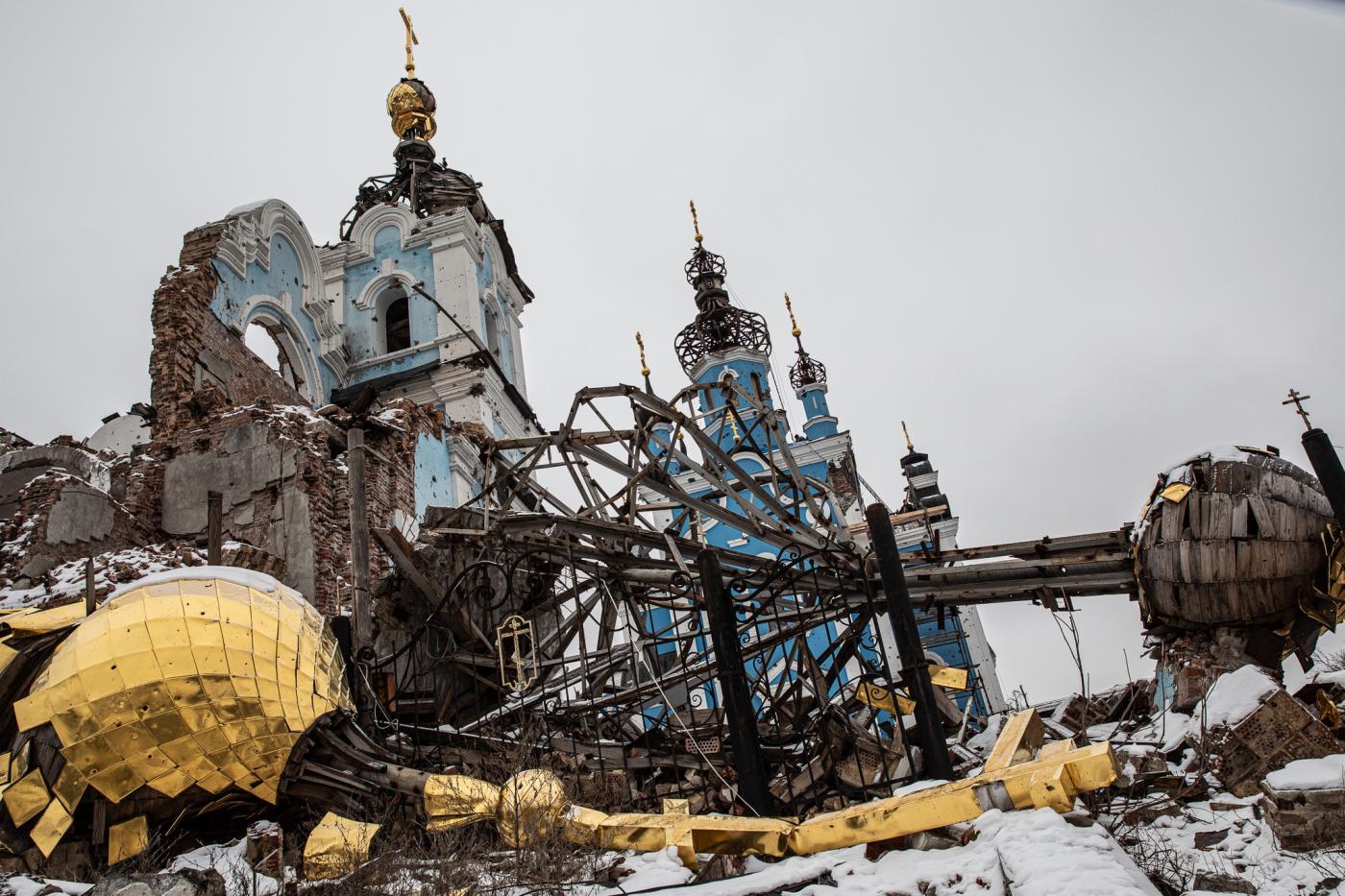
Das Alte Jahr Vergangen Ist
- 4 minsIntroduction
The year is almost over, meaning it’s a good time to reflect on some music which left a mark. One such piece, with the fitting title “Das alte Jahr vergangen ist (The Old Year Has Passed), Variation on the choral by Bach”, is by the Russian-Ukrainian composer Vladimir Tarnopolski. The piece was written in 2023 (in the midst of the Russo-Ukrainian War) for a large ensemble of ancient and modern instruments, and is based on a particularly beautiful chorale-prelude bearing the same title, composed by Johann Sebastian Bach.
Tarnopolski’s piece can be heard here.
About the piece
These are some of Tarnopolski’s own words about his piece:
The idea of my variations is that the subtle pointillistic orchestration of the chorale is gradually invaded and periodically interrupted by the sounds of war — the rumble of bombers, military fanfares of brass, the rolls of the war drums. In the chorale itself, the sad chromatically ascending phrase becomes more and more expanded until it becomes the central element of the entire coda.
While working on it, I was inspired not by the “objective” organ sound of this chorale, but by the unusually soulful performance of this piece by Marta and Gyorgy Kurtag on an old piano four hands.
I personally recommend this performance of the above-mentioned arrangement.
Analysis
My take on this piece is that one could view the material by Bach as a haven or spiritual refuge of sorts, the foundations of which are constantly being shaken by the events occuring outside. This yields a juxtaposition of ‘interior’ and ‘exterior’ sound spaces, which are constantly overriding one another. A fitting analogy would be the composer at work trying to compose, while outside the gunshots ring and the bombs fall.
Particularly evocative to me is Tarnopolski’s explicit choice of musical interruptions, which my partner (whom I forced to listen to the piece) wisely described as “abysses” or precipices. The first such interruption is by a trombone, which plays a far-away murmur suggestive of a travelling fighter-plane. Later interruptions take more “symbolic” forms, including the sound of trumpets and snare drum- instruments which were once used extensively in war. This is the sound of warfare filtered through the composer’s musical psyche, via the toolbox of his musical associations. Stated differently: the only way to make sense of the unexpressible is via the words we know. The boundaries between the “inner” and “outer” musical worlds are increasingly blurred in ways which convey the composer’s difficulty in separating the two, until they become equally present, combining to a single, undivisible whole.
One might interpret this as an act of “profanation,” where the purity and austerity of Bach’s music is contaminated by external elements. However, to me, it actually adds meaning to the Bach, as this becomes something “of the world”, interacting with other sounds in the environment. As a performer/composer I especially drawn to the idea of classical music coming out of its “hole in the ground” and interacting with the sounds of the 21st century, those which we hear on a daily basis.
As Tarnopolski mentions, the piece ends with a constantly-rising spiral which inevitably breaks out of the orbit of Bach’s piece, and leaves us listeners dangling in mid-sentence with no sense of resolution. To me, this emphasizes the piece’s identity as a diary entry or a “moment in time”, one which cannot be succintly wrapped-up or made sense of.
Conclusion
What I find beautiful about this piece is how personal and timely it feels, despite most of the material having been written over 300 years ago. I truly believe that classical music (and Bach’s music specifically) is relevant and meaningful in the current 21st century, dominated by topics such as AGIs, climate change, etc… I think that intelligent and sensitive pieces of music such as Tarnopolski’s can help us reflect on this and perhaps find certain connections between the old and the new, something which could give us a richer and broader perspective on the world around us.
Finally, I found myself thinking of this video, which I think captures poignantly the role of music in difficult times: providing a bubble within which we can take a moment and forget about the world outside.